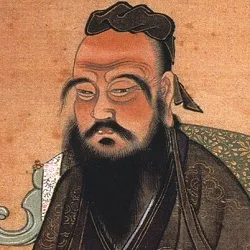- RESEARCHDistance Learning at AIU is enhanced by vast academic resources and innovative technologies build into the Virtual Campus: Hundreds of self-paced courses with video lectures and step by step lessons, thousands of optional assignments, 140,000 e-books, the Social Media & Networking platform allowing collaboration/chat/communications between students, and MYAIU develop students holistically in 11 areas beyond just academics.
- PROGRAMS OFFERED
- Areas of Study
- Courses and Curriculum
- Open Courses
- Register for a Program
- Associate Program
- Associate in Addiction Counseling
- Associate in Agriculture Food And Resources
- Associate in Anti Terrorism Security
- Associate in Behavior Analysis In Special Education
- Associate in Bioethics
- Associate in Climatology
- Associate in Cultural Theological Communication
- Associate in Culinary Arts
- Associate in Ecotechnology
- View all Associates Programs
- Bachelor Program
- Bachelors in Community Development
- Bachelors in Environmental Science
- Bachelor in Education (B.Ed, BS)
- Bachelors in Economics
- Bachelors in Entrepreneurship
- Bachelors in Financial Administration
- Bachelors in Human Resource Management
- Bachelors in Linguistics
- Bachelors in Nutritional Science
- Bachelors in Occupational Health and Safety
- Bachelors in Psychology
- View all Bachelor Programs
- Doctorate Program
- Doctor | of Biology (PhD)
- Doctorate in Business Administration (DBA, PhD)
- Doctor of Economics (PhD)
- Doctor of Electrical Engineering (D.Sc, PhD)
- Doctor of Finance (PhD)
- Doctorate in International Relations
- Doctorate in Information Technology (D.Sc)
- Doctor of Legal Studies (PhD)
- Doctor of Project Management (PhD)
- Doctor of Sociology (PhD, D.Sc)
- Doctorate in Sustainable Natural Resources Management
- View all Doctorate Programs
- Master Program
- Postdoctoral Program
- Postdoctoral in Animal Science
- Postdoctoral in Anti Terrorism Security
- Postdoctoral in Behavior Analysis In Special Education
- Postdoctoral in Bioethics
- Postdoctoral in Blockchain Technology and Digital Currency
- Postdoctoral in Business Management
- Postdoctoral in Cloud Computing
- Postdoctoral in Computer Engineering
- View all Postdoctoral Programs
AIU offers a wide range of majors in areas including the Arts, Business, Science, Technology, Social, and Human studies. More than 120 degrees and programs are available for adult learners at the associate’s, bachelor’s, master’s, doctoral and postdoctoral level. - VIRTUAL CAMPUS
Distance Learning at AIU is enhanced by vast academic resources and innovative technologies build into the Virtual Campus: Hundreds of self-paced courses with video lectures and step by step lessons, thousands of optional assignments, 140,000 e-books, the Social Media & Networking platform allowing collaboration/chat/communications between students, and MYAIU develop students holistically in 11 areas beyond just academics.
- ALUMNI
The world is YOUR campus!”, that is the message of AIU’s month magazine Campus Mundi. Hear the voices and see the faces that make up AIU. Campus Mundi brings the world of AIU to you every months with inspirational stories, news and achievements by AIU members from around the world (students and staff are located in over 200 countries).
- RESEARCHDistance Learning at AIU is enhanced by vast academic resources and innovative technologies build into the Virtual Campus: Hundreds of self-paced courses with video lectures and step by step lessons, thousands of optional assignments, 140,000 e-books, the Social Media & Networking platform allowing collaboration/chat/communications between students, and MYAIU develop students holistically in 11 areas beyond just academics.
- PROGRAMS OFFERED
- Areas of Study
- Courses and Curriculum
- Open Courses
- Register for a Program
- Associate Program
- Associate in Addiction Counseling
- Associate in Agriculture Food And Resources
- Associate in Anti Terrorism Security
- Associate in Behavior Analysis In Special Education
- Associate in Bioethics
- Associate in Climatology
- Associate in Cultural Theological Communication
- Associate in Culinary Arts
- Associate in Ecotechnology
- View all Associates Programs
- Bachelor Program
- Bachelors in Community Development
- Bachelors in Environmental Science
- Bachelor in Education (B.Ed, BS)
- Bachelors in Economics
- Bachelors in Entrepreneurship
- Bachelors in Financial Administration
- Bachelors in Human Resource Management
- Bachelors in Linguistics
- Bachelors in Nutritional Science
- Bachelors in Occupational Health and Safety
- Bachelors in Psychology
- View all Bachelor Programs
- Doctorate Program
- Doctor | of Biology (PhD)
- Doctorate in Business Administration (DBA, PhD)
- Doctor of Economics (PhD)
- Doctor of Electrical Engineering (D.Sc, PhD)
- Doctor of Finance (PhD)
- Doctorate in International Relations
- Doctorate in Information Technology (D.Sc)
- Doctor of Legal Studies (PhD)
- Doctor of Project Management (PhD)
- Doctor of Sociology (PhD, D.Sc)
- Doctorate in Sustainable Natural Resources Management
- View all Doctorate Programs
- Master Program
- Postdoctoral Program
- Postdoctoral in Animal Science
- Postdoctoral in Anti Terrorism Security
- Postdoctoral in Behavior Analysis In Special Education
- Postdoctoral in Bioethics
- Postdoctoral in Blockchain Technology and Digital Currency
- Postdoctoral in Business Management
- Postdoctoral in Cloud Computing
- Postdoctoral in Computer Engineering
- View all Postdoctoral Programs
AIU offers a wide range of majors in areas including the Arts, Business, Science, Technology, Social, and Human studies. More than 120 degrees and programs are available for adult learners at the associate’s, bachelor’s, master’s, doctoral and postdoctoral level. - VIRTUAL CAMPUS
Distance Learning at AIU is enhanced by vast academic resources and innovative technologies build into the Virtual Campus: Hundreds of self-paced courses with video lectures and step by step lessons, thousands of optional assignments, 140,000 e-books, the Social Media & Networking platform allowing collaboration/chat/communications between students, and MYAIU develop students holistically in 11 areas beyond just academics.
- ALUMNI
The world is YOUR campus!”, that is the message of AIU’s month magazine Campus Mundi. Hear the voices and see the faces that make up AIU. Campus Mundi brings the world of AIU to you every months with inspirational stories, news and achievements by AIU members from around the world (students and staff are located in over 200 countries).
Scientists Identify New Blood Group After a 50-Year Mystery

How can understanding rare blood types improve patient care?
What role do genetic mutations play in determining our blood types?
How might new scientific discoveries impact the future of healthcare?
Share with AIU community how this found can change the way we live.
Login to your student section to access the AIU Additional Resources Library to learn more about this groundbreaking discovery.
Scientists Identify New Blood Group After a 50-Year Mystery
In 1972, a routine blood test from a pregnant woman revealed something that puzzled doctors for decades. Her blood lacked a surface molecule found in every other known red blood cell at the time. Fast forward 50 years, and after extensive research, scientists from the UK and Israel have finally identified a new blood group system in humans. This discovery, a testament to the perseverance and collaboration of researchers, adds yet another piece to the complex puzzle of human biology.
This article explores the significance of this breakthrough, the science behind blood groups, and how such discoveries can save lives by improving medical care for rare blood disorders. Understanding these complexities not only advances science but opens doors for medical innovations that could one day benefit each of us.

What are blood group systems?
We are most familiar with the ABO blood group system and the Rhesus factor (the “+” or “-” after your blood type). However, there are actually many different blood group systems in humans. These systems are based on various proteins and sugars that coat the surface of red blood cells.

Antibodies in our blood plasma detect when a foreign antigen marker is present.
(Tasha Vector/iStock/Getty Images)
These surface molecules, known as antigens, serve as identification markers that help the body distinguish its own cells from foreign invaders. This is crucial in the immune response. If you receive a blood transfusion from someone whose antigens do not match your own, your immune system may recognize these foreign antigens as a threat and attack the transfused blood. This can result in a severe and potentially life-threatening reaction.
Most of the major blood group systems were discovered in the early 20th century. Over time, scientists have identified more systems, some of which affect only a small percentage of the population. The newly discovered MAL blood group falls into this category. Although rare, these blood types can have serious implications for medical care, especially when it comes to transfusions and pregnancies.
The 50-year search for the MAL Blood Group
The discovery of the MAL blood group began in 1972 when a pregnant woman’s blood test revealed that her red blood cells lacked a specific surface antigen, later identified as AnWj. At that time, it was a mystery as to why her blood lacked this molecule. Over the next few decades, researchers worked to understand the significance of this anomaly, leading to the eventual identification of the MAL blood group.
More than 99.9% of people have the AnWj antigen, which resides on a specific protein known as myelin and lymphocyte protein (MAL). However, individuals with mutations in both copies of the MAL gene lack this antigen, resulting in the AnWj-negative blood type. This means they belong to the rare MAL blood group. Only a handful of such cases have been identified globally, making the research process long and challenging.
What makes the MAL protein particularly interesting is its role in stabilizing cell membranes and aiding in cellular transport. The discovery of this new blood group adds to our understanding of how critical this protein is, not only for maintaining healthy cells, but also for recognizing rare genetic mutations that can affect an individual’s blood type.

The AnWj antigen – an antigen is a surface marker – was discovered in 1972 but its genetic background was unknown until now.
Representational Image/Pixabay
The process behind the discovery
The research team, led by UK National Health Service hematologist Louise Tilley and University of the West of England cell biologist Tim Satchwell, spent nearly 20 years working on this problem. Their goal was to confirm that the MAL gene was responsible for the AnWj-negative blood type.

www.bbc.com
To do so, they introduced the normal MAL gene into blood cells that lacked the AnWj antigen. As expected, the AnWj antigen appeared in the modified cells, proving that the MAL gene was directly responsible for producing this antigen. This success marked the end of a 50-year mystery and established the MAL blood group as an official system in human biology.
Interestingly, newborns do not have the AnWj antigen at birth—it develops soon after. This discovery shows how our understanding of blood groups continues to evolve, providing insights into both genetics and human development.
Why does this matter?
Blood transfusions save lives every day, but they must be carefully matched to avoid harmful immune reactions. Discovering rare blood group systems, like the MAL blood group, allows doctors to provide better care for patients with uncommon blood types. Knowing a patient’s blood type in detail ensures that they receive safe transfusions and avoid dangerous reactions.
Moreover, rare blood types can indicate underlying medical conditions. For instance, the absence of the AnWj antigen could be due to a genetic mutation or a suppression of the antigen, which might point to other health issues. Testing for these rare blood groups can help doctors identify and treat hidden medical conditions.
This discovery emphasizes the importance of understanding the full spectrum of blood group systems, especially for patients who have rare genetic conditions. By advancing our knowledge of human biology, scientists can improve medical care for patients worldwide.
What comes next?
The identification of the MAL blood group is a reminder that scientific discovery is a continuous process. With the rapid advancement of genetic technology, we are now able to identify even the rarest blood groups. This helps doctors provide personalized care for patients with uncommon blood types and improves outcomes in both routine and emergency medical procedures.
For students and professionals interested in the field of genetics, hematology, or medical research, this discovery underscores the critical role of research in advancing healthcare. Such breakthroughs remind us that persistence in scientific investigation leads to solutions that can impact lives globally.
The power of knowledge
The discovery of the MAL blood group system after decades of research highlights the importance of scientific persistence and collaboration. Understanding these rare blood types not only broadens our knowledge of human biology but directly influences the quality of medical care for patients with unique genetic traits.
At Atlantic International University (AIU), we encourage students to delve into such topics to understand the broader impact of science on society. If you are interested in pursuing a career in medical research, genetics, or biological sciences, AIU offers programs designed to empower you with the knowledge and skills needed to contribute to groundbreaking discoveries.
Start your journey today by exploring our programs in biology, genetics, and health sciences to deepen your understanding and make a difference in the world.
Also, you can learn more about this topic in AIU’s, wide range of recorded classes that cover various subjects of interest and that can be very useful to expand your knowledge. If this topic interests you, you can explore related live classes. Our extensive online library is also home to a wealth of knowledge, comprised of miles of e-books, serving as a valuable supplemental resource.
Below we share a series of resources that will help you expand your knowledge on this topic:
Scientists Identify New Blood Group After a 50 Year Mystery
Discovery Points to a Crucial Role Red Blood Cells Play in Our Immune Systems
Scientists find new blood group after 50-year mystery
Blood Types and Titers: Saving Lives on the Battlefield with Blood Far Forward.
Reminder to our Dear Students,
Please ensure you are logged in as a student on the AIU platform and logged into the AIU Online
Library before accessing course links. This step is crucial for uninterrupted access to your learning
resources.
AIU Success Stories









Contact Us Today!
Begin Your Journey!
AIU’s Summer of Innovation and Growth gives you the ability to earn up to $5000 in tuition credit by completing free lessons and courses.
Whether you’re looking to acquire new skills, advance your career, or simply explore new interests, AIU is your gateway to a world of opportunities. With free access to 3400 lessons and hundreds of courses the ability to earn credits and earn certificates there’s no better time to start learning.
Join us today as a Guest Student and take the first step towards a brighter, more empowered future.
Explore. Learn. Achieve.

Contact Us
Atlantic International University
900 Fort Street Mall 905 Honolulu, HI 96813 info@aiu.edu
Quick Links
Home | Online Courses | Available Courses | Virtual Campus | Career Center | Available Positions | Ask Career Coach | The Job Interview | Resume Writing | Accreditation | Areas of Study | Bachelor Degree Programs | Masters Degree Programs | Doctoral Degree Programs | Course & Curriculum | Human Rights | Online Library | Representations | Student Publication | Sponsors | General Information | Mission & Vision | School of Business and Economics | School of Science and Engineering | School of Social and Human Studies | Media Center | Admission Requirements | Apply Online | Tuition | Faculty & Staff | Distance Learning Overview | Student Testimonials | AIU Blogs | Register for Program | Privacy Policy | FAQ


















